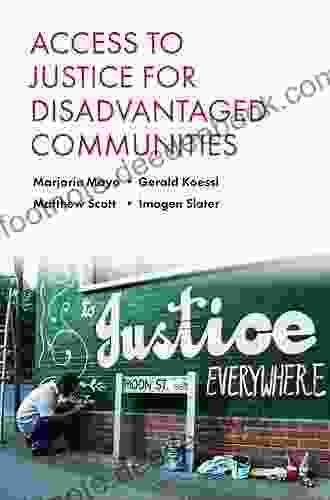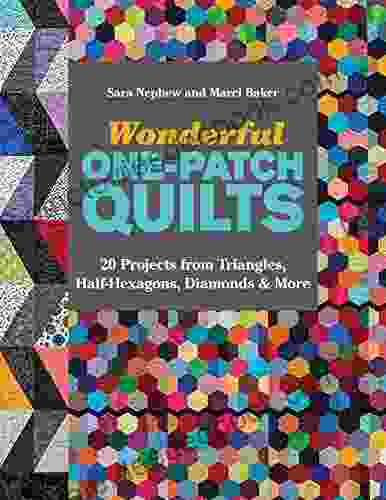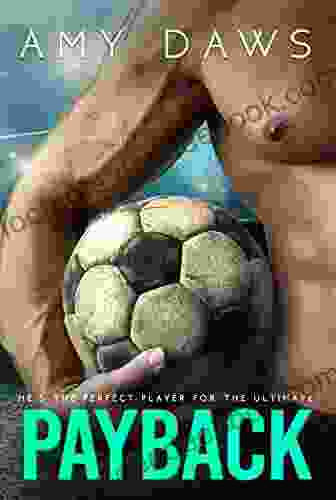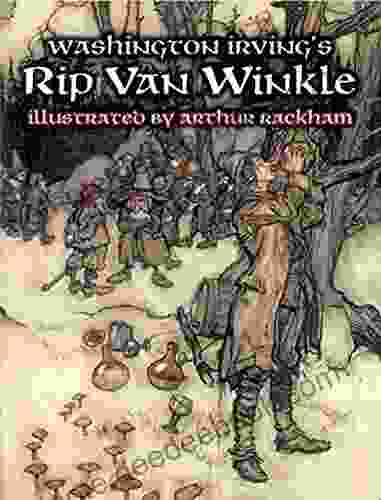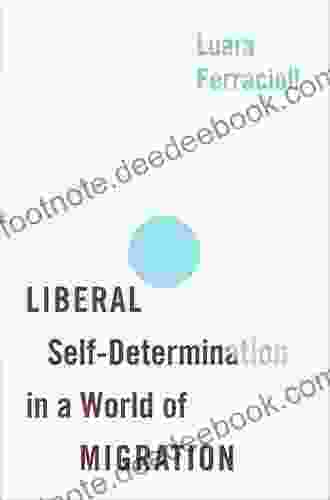Access to Justice for Disadvantaged Communities: A Comprehensive Guide

Access to justice is a fundamental human right that ensures everyone has equal opportunity to seek legal remedies and protection under the law. However, for disadvantaged communities, accessing justice can be a significant challenge due to a range of barriers, including poverty, discrimination, and lack of legal knowledge or resources.
5 out of 5
| Language | : | English |
| File size | : | 1435 KB |
| Text-to-Speech | : | Enabled |
| Screen Reader | : | Supported |
| Enhanced typesetting | : | Enabled |
| Word Wise | : | Enabled |
| Print length | : | 174 pages |
Challenges Faced by Disadvantaged Communities
- Poverty: Poverty can create significant barriers to accessing justice, as individuals and families may not be able to afford legal fees, court costs, or other expenses associated with legal proceedings.
- Discrimination: Disadvantaged communities often face discrimination in the legal system, which can make it difficult to obtain fair and equitable treatment. This discrimination can manifest in various forms, such as racial profiling, biased jury selection, and unequal sentencing practices.
- Lack of Legal Knowledge or Resources: Many disadvantaged communities lack access to legal information and resources, which can make it difficult to understand their legal rights and options. This lack of knowledge can result in individuals and families being unable to effectively navigate the legal system.
- Language Barriers: For communities where English is not the primary language, language barriers can pose significant challenges to accessing justice. Legal documents and proceedings may be difficult to understand, and individuals may not have access to interpreters or other language assistance.
- Cultural Barriers: Cultural differences can also create barriers to accessing justice. For example, some cultures may view seeking legal help as a sign of weakness or shame, which can discourage individuals from seeking legal assistance.
Legal and Policy Frameworks
Several legal and policy frameworks exist to promote access to justice for disadvantaged communities. These frameworks include:
- The Equal Protection Clause of the Fourteenth Amendment to the U.S. Constitution prohibits states from denying any person within their jurisdiction the equal protection of the laws.
- The Americans with Disabilities Act (ADA) prohibits discrimination against individuals with disabilities in all aspects of public life, including access to the legal system.
- The Legal Services Corporation (LSC) is a federally funded non-profit organization that provides grants to legal aid organizations across the United States.
- Pro bono programs, which allow attorneys to provide free or low-cost legal services to low-income clients.
- Public interest law firms, which focus on representing the interests of disadvantaged communities.
The Role of Stakeholders
Various stakeholders play a crucial role in promoting access to justice for disadvantaged communities. These stakeholders include:
- Governments have a responsibility to ensure that everyone has equal access to justice under the law. This includes providing funding for legal aid programs, enacting anti-discrimination laws, and supporting initiatives to increase legal literacy.
- Courts can play a role in promoting access to justice by ensuring that all individuals are treated fairly in the legal system, regardless of their background or circumstances.
- Legal aid organizations provide free or low-cost legal services to low-income individuals and families. These organizations play a vital role in ensuring that disadvantaged communities have access to the legal system.
- Pro bono attorneys donate their time to provide legal services to low-income clients. Pro bono attorneys can make a significant contribution to increasing access to justice.
- Community organizations can play a role in promoting access to justice by providing legal information and resources to disadvantaged communities. These organizations can also advocate for policies that promote equal access to justice.
Access to justice is a fundamental human right that all individuals, regardless of their background or circumstances, should be able to enjoy. For disadvantaged communities, accessing justice can be a significant challenge due to various barriers, including poverty, discrimination, and lack of legal knowledge or resources. To address these challenges, it is essential that all stakeholders, including governments, courts, legal aid organizations, pro bono attorneys, and community organizations, work together to promote equal access to justice.
By working together, we can create a more just and equitable society where everyone has the opportunity to seek legal remedies and protection under the law.
5 out of 5
| Language | : | English |
| File size | : | 1435 KB |
| Text-to-Speech | : | Enabled |
| Screen Reader | : | Supported |
| Enhanced typesetting | : | Enabled |
| Word Wise | : | Enabled |
| Print length | : | 174 pages |
Do you want to contribute by writing guest posts on this blog?
Please contact us and send us a resume of previous articles that you have written.
 Book
Book Novel
Novel Chapter
Chapter Story
Story Library
Library Magazine
Magazine Newspaper
Newspaper Paragraph
Paragraph Sentence
Sentence Shelf
Shelf Glossary
Glossary Foreword
Foreword Synopsis
Synopsis Annotation
Annotation Codex
Codex Bestseller
Bestseller Classics
Classics Library card
Library card Narrative
Narrative Biography
Biography Memoir
Memoir Reference
Reference Encyclopedia
Encyclopedia Thesaurus
Thesaurus Catalog
Catalog Borrowing
Borrowing Stacks
Stacks Study
Study Lending
Lending Academic
Academic Reading Room
Reading Room Rare Books
Rare Books Special Collections
Special Collections Literacy
Literacy Study Group
Study Group Thesis
Thesis Dissertation
Dissertation Storytelling
Storytelling Awards
Awards Reading List
Reading List Radek Kucharski
Radek Kucharski Jack T Rivers
Jack T Rivers Amy Knupp
Amy Knupp Garrison Nelson
Garrison Nelson Miguel Cortez
Miguel Cortez Kenneth Glazer
Kenneth Glazer John Agresto
John Agresto Tea Krulos
Tea Krulos Ida Maddalena
Ida Maddalena Charae Lewis
Charae Lewis Sax Rohmer
Sax Rohmer Marilyn Booth
Marilyn Booth Jerry Arcidiacono
Jerry Arcidiacono J Andrew Ross
J Andrew Ross Craig Shirley
Craig Shirley Cairo Copeland
Cairo Copeland Ron Haskins
Ron Haskins Martyn Bond
Martyn Bond Lynette Noni
Lynette Noni Ralph Van Deman Magoffin
Ralph Van Deman Magoffin
Light bulbAdvertise smarter! Our strategic ad space ensures maximum exposure. Reserve your spot today!
 Cody RussellFollow ·5.9k
Cody RussellFollow ·5.9k Yasunari KawabataFollow ·9.2k
Yasunari KawabataFollow ·9.2k Clinton ReedFollow ·9.2k
Clinton ReedFollow ·9.2k Garrett BellFollow ·9.5k
Garrett BellFollow ·9.5k William FaulknerFollow ·2.4k
William FaulknerFollow ·2.4k Patrick HayesFollow ·12.5k
Patrick HayesFollow ·12.5k Ervin BellFollow ·12.4k
Ervin BellFollow ·12.4k Rick NelsonFollow ·2.3k
Rick NelsonFollow ·2.3k
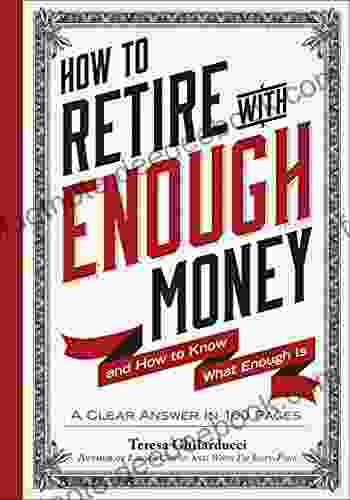
 Allen Ginsberg
Allen GinsbergUnveiling the True Meaning of Enough: A Comprehensive...
: In the relentless pursuit of progress and...

 Clay Powell
Clay PowellHawker Hunter: The Jet Fighter that Shaped British...
Nestled in the halls of aviation...
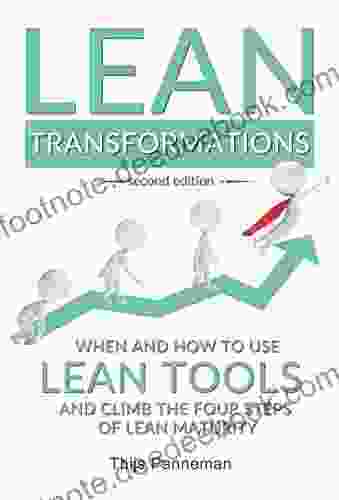
 Alec Hayes
Alec HayesWhen and How to Use Lean Tools and Climb the Four Steps...
Lean is a management...
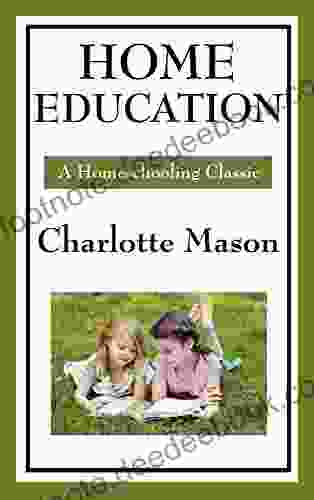
 Trevor Bell
Trevor BellVolume of Charlotte Mason Original Homeschooling: A...
Charlotte Mason's original...

 John Parker
John ParkerAscending Tristan da Cunha: A Comprehensive Guide to...
Prepare yourself for an extraordinary journey...
5 out of 5
| Language | : | English |
| File size | : | 1435 KB |
| Text-to-Speech | : | Enabled |
| Screen Reader | : | Supported |
| Enhanced typesetting | : | Enabled |
| Word Wise | : | Enabled |
| Print length | : | 174 pages |


